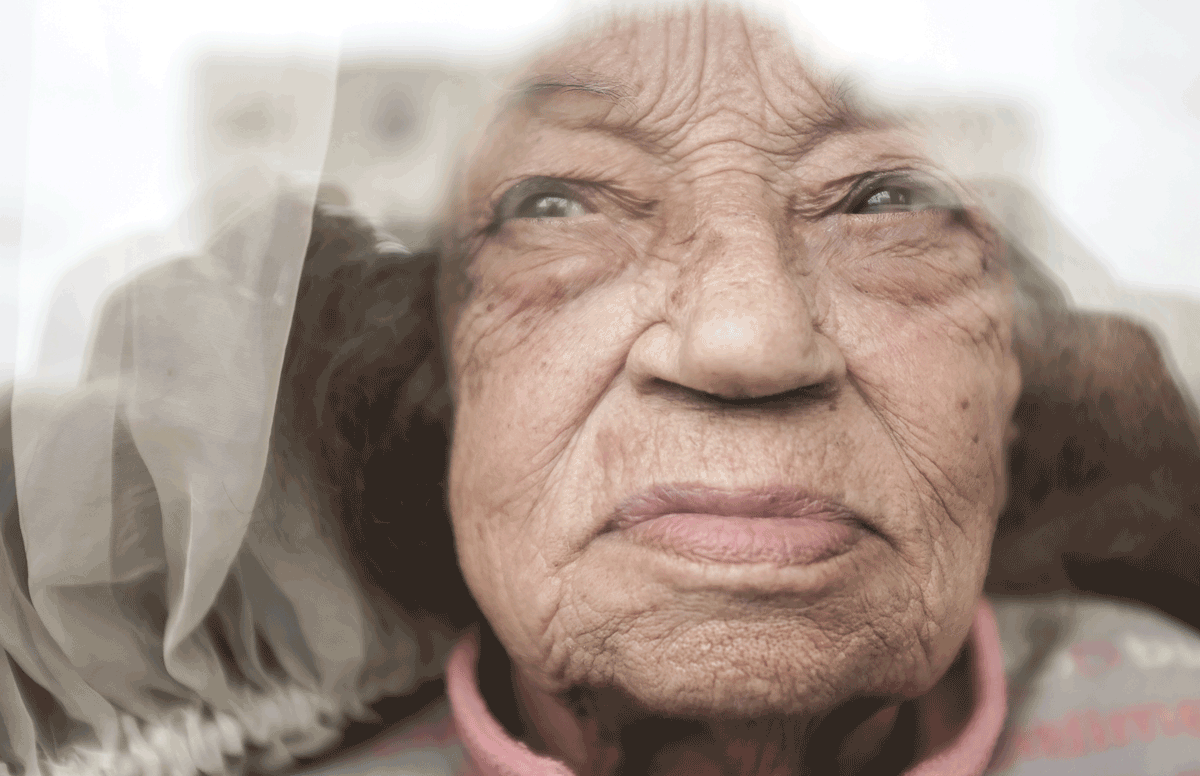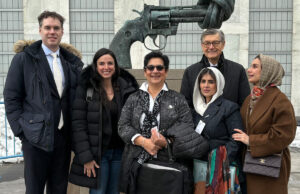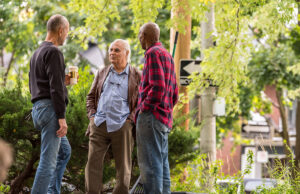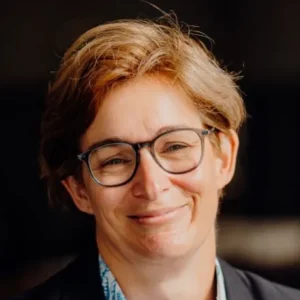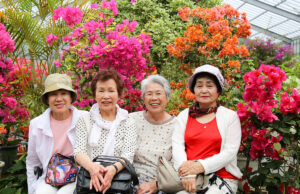The issues and facts of ageing, in countries around the world, share many similarities but also differ in many ways, especially due to socioeconomic differences between nations. Understanding what these are, their causes and potential solutions, is critical to helping current and future leaders grow and build their skills. To help participants of the Global Ageing Network Leadership Series, now in its second cohort, Dr. Leon Geffen, director of the Samson Institute for Ageing Research and an honorary senior lecturer in the Geriatrics Unit, Faculty of Health Sciences at the University of Cape Town, recently shared his insights on international ageing. He emphasized the value of bringing together diverse groups of people, like Global Ageing Network members, to achieve progress on a global scale.
“Change happens incrementally,” he says, explaining that building awareness of shared issues is critical to effort, by “getting an enormously diverse group of people from across the globe, working in all sectors, from the grassroots to the very advanced tertiary care services in research centres, to talk and realize that everyone plays a role and everyone makes a difference.”
Dr. Geffen provided a broad overview of the challenges of global ageing, including the fact that by 2050, there will be 2 billion older persons, and 80% will live in low- and middle-income countries. He also pointed out that the “burden of disease” is much higher in Africa, where there are 2.6 doctors per 10,000 people, in contrast to Canada, where there are 28.2 doctors per 10,000 people.
Discussing the contrasts between aged care in high-income countries versus low- and middle-income countries, including sub-Saharan Africa, Geffen observes, “Conducting comprehensive geriatric assessments on patients by doctors in low- and middle-income countries one-on-one is not a scalable model,” Geffen says, “particularly when we have such limited resources in the global South as opposed to high-income countries. In sub-Saharan Africa, we’ve got one doctor per 5,000 people, so [you have] ten times the amount of resources [in the U.S. or Canada] that we have. We don’t have the nurses, we don’t have the training, we don’t have the services, we don’t have the policies.”
In low- and middle-income countries, research and health resources are directed—rightly, Geffen says—toward child and maternal health, HIV, TB, malaria, and other health issues. “The natural consequence of that is that people get older if you’re successful in what you’re doing,” leaving diminishing funding available for research and services for older people.
Geffen’s work with the Samson Institute has focused on three major areas.
- “One is to develop a novel way of assessing older persons,” he says. “Understanding the resource limitations in countries with limited health care workers, but you’ve got quite a good community health workforce. Geffen is a Fellow of interRAI, a global organization that develops instruments for assessing comprehensive health status, screening, and quality of life. “So we developed an instrument that allows them to assess older persons, or alternatively have a family member do an assessment, or even a self-assessment. We’ve been fairly successful with that and our project has now been expanded to 11 other African countries.”
- Geffen has also been involved with the AgeWell program in Cape Town, a peer-to-peer model designed to increase emotional and informational support, decrease loneliness, and improve well-being. “They had older people in a very deprived neighborhood going into other people’s homes, and suddenly realizing that they had value to add and a difference that they could make for similarly aged older persons who weren’t as as high-functioning as they were, […] or may have had mood problems or loneliness or some sort of care need. But it made a massive impact on the health and well-being of those older persons. That program was recognized by WHO in 2015 as one of the most innovative programs in terms of providing care to older persons.
- A third area of focus is his involvement with the World Health Organization’s UN Decade of Healthy Ageing, helping to develop a strategic road map making use of WHO resources.
In places like India and China, Geffen says, “where you will have 1.6 billion older people in low- and middle-income countries by 2050, vast numbers are never going to get the opportunity to see a geriatrician, an advanced care practitioner. But they will be engaging with people across all forms of health care services and sectors, and we need to build skills.”
That, he says, is the beauty of Global Ageing Network, which acknowledges the value of shared learning, and saying to everyone who’s involved in this, ‘We value you and we can all make a difference.’”
